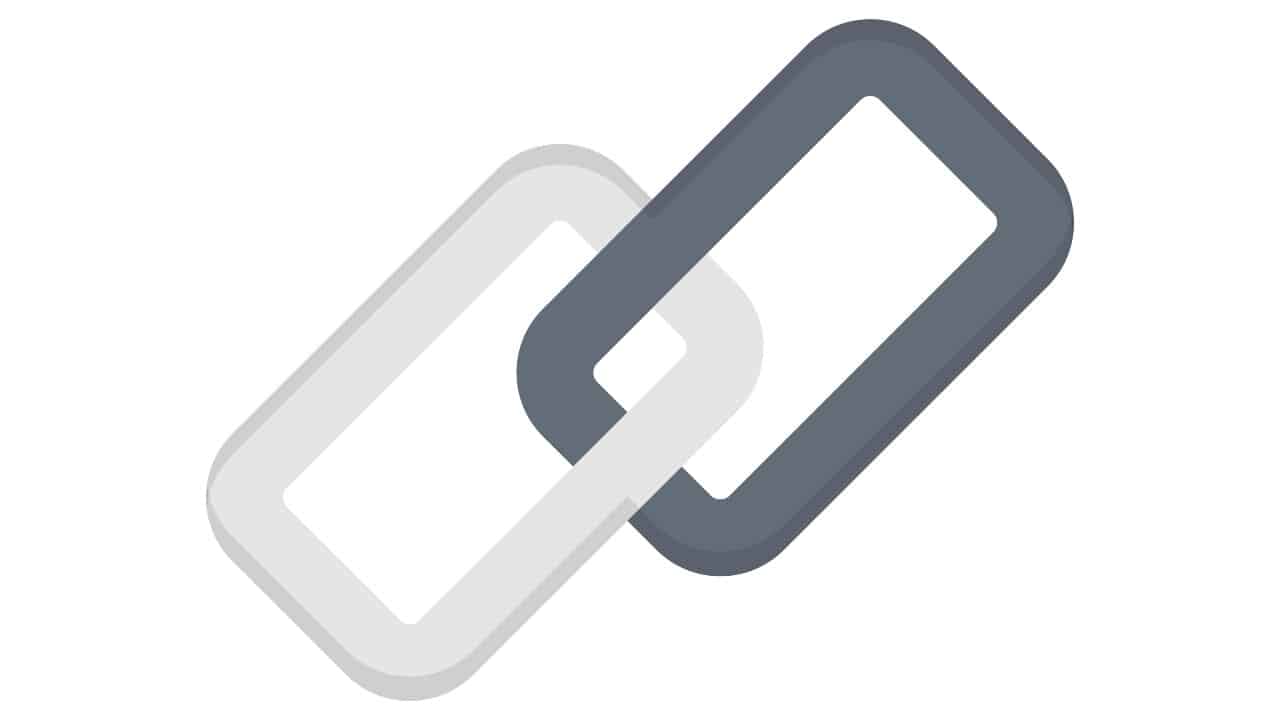Building a website and creating content to rank high in Google search is not enough. You’re investing a lot of time and effort in creating an asset that won’t generate any return on investment – until you start to add some links.
That’s where search engine optimization comes into play to activate your resources and put them in front of your target audience’s eyes.
But when you’re just starting with your search engine optimization, it can be pretty overwhelming and confusing. This digital marketing approach consists of a number of different tactics and strategies, all of which contribute to catapulting your website to the top of the search results page on Google.
Some include on-page SEO, voice search optimization, mobile-first design, improving user experience, and technical SEO.
If you have a lot of high-quality content, there’s a simple way to improve your rankings and ensure your website appears in relevant searches – link building.
In this article, we’ll talk about the benefits of link building and how it can help you drive organic traffic to your website.
What Is Link Building?
Link building is having your website hyperlinked from another website.
People trust recommendations from friends and family whenever they want to buy something. So, instead of trusting a brand, they don’t know, they decide based on the opinion of credible sources.
The same applies to ranking.
Reputation is crucial in the online world, so people trust only websites and content vouched for by trustworthy and reputable sources. It’s not the same if you read something on The Huffington Post, The New York Times, The Independent, or an internet portal you’ve never heard about before.
If you still haven’t built a name for yourself, a seal of approval from reputable websites linking to your content could work wonders for your rankings.
In other words, you need to get links to your website from some big names in your industry. This way, they, in a way, vouch for the quality and relevance of your content, thus convincing Google that your website is legit.
The more external links pointing back to your domain, the better.
Given that more than 66% of pages don’t have backlinks, you’ll be better ranked than 34% of all pages when you utilise this strategy.
However, quantity is by no means the only factor that Google considers.
Building links unselectively will be considered spamming, and such a shady practice can only hurt your reputation.
A balanced strategy focused on placing valuable and relevant links for your target audience is the right way to do link building.
It’s worth mentioning that link building is a proactive tactic in which you reach out to authority websites to get them to link back to your content.
Is Link Building Safe?
In 2015, Google’s John Mueller said he would avoid link building.
Just a few years ago, before Google implemented its ranking algorithm, people often viewed link building as a shady practice. Websites tried to acquire as many backlinks as possible and leveraged spamming random websites, placing their links on forums, and sending out spammy cold emails.
Things have changed since then, as well as effective link-building strategies. Today, you can even outsource your link building tasks to reputable agencies.
Instead of going for random links from low-ranked websites unrelated to your industry, what you should do is:
- Content curation
- Guest blogging
- Personalized and tailored email outreach
- Building relationships and partnerships.
Remember that your primary goal should be providing value to your readers, so make sure every backlink you build resonates with them and offers them helpful and relevant information.
Now that you understand that quality comes first when it comes to link building, we can discuss this strategy’s benefits.
1. Growing Traffic
When an authority website that boasts a lot of visitors links back to your content, you can expect an increase in traffic. People who read an article in SearchEngineJournal that features your link will likely click on it and check your website out.
Since they trust SEJ, they know this website links only to relevant educational sources.
Link building is considered one of the most effective and cost-efficient ways to drive targeted traffic.
Still, remember that even though an authority linking website will send you quality traffic, this doesn’t mean that all those visitors will convert. Some will buy something or subscribe to your service, while others will share your content.
In any case, link building will get the ball rolling when it comes to your website traffic.
2. Boosting Credibility
Google’s main goal is to quickly offer its users the most relevant results.
The search engine wants the results it serves to meet searchers’ expectations and provide value to them.
Even though the Google algorithm is state of the art, it still needs assistance in determining every piece of content’s value, relevance, and quality. Backlinks signal to Google that a particular article, video, infographic, or manual has what it takes to give a relevant answer to the question from the query.
Google indicates that a diverse and healthy backlink profile for your website indicates that multiple authoritative websites have endorsed and verified its quality and value.
Every link pointing back to your website is like a vote of confidence in your favor.
Apart from ensuring you only get links from reputable websites, here’s another catch you should be aware of: it’s better and more effective to get ten links from 10 different domains than ten links from just one.
That will further enhance your credibility and reputation.
3. Improving Rankings
It’s practically impossible for Google to rank your site if no links are pointing to it.
Let’s say you want to rank for a specific keyword.
The odds are that many of your competitors, some of which are big brands, want the same.
They probably have a higher percentage of backlinks if they rank better than you.
The math is simple – if you want to outperform your competitors in terms of ranking, you should have more backlinks than them.
If you aren’t sure how to do that, use a tool to help you find out where their links come from, such as Ahrefs or SEMRush. With a list of linking websites you stole from your competitors, you can move on to analyzing the content that got the most backlinks.
If you have a blog post on a similar topic, update and improve it; if you haven’t covered it, create it from scratch. The aim is to make it better and more informative than your competitors.
Finally, reach out to the sources that link back to your competitors, and tell them that you have an even more comprehensive piece on the same topic. Even if only a couple of them decide to give you a link, you’ll still benefit from a number of high-profile visits to your new content.
4. Better SEO Score and Site Metrics
The health of your website depends on a set of different factors, which is why to determine it, you need to know your domain rating (DR), domain authority (DA), page rank (PR), and Alexa rank (AR).
By building links, you’ll positively impact all these metrics and, in turn, improve the overall health of your website.
While it’s not possible to control which sources choose to link back to your website, you do have the option to remove these links using Google’s Disavow Links tool.
5. Increasing Visibility and Exposure
The more backlinks your website has, the better your online visibility.
This means that your content will appear more frequently and be positioned among the top results if many reputable sources link back to it.
It’s safe to conclude that link building will expand your reach and help your brand become more visible.
This way, you’ll significantly facilitate and speed up generating links for your business.
By building links, you can expose your brand, products, and services to your target audiences and new ones. If your prospects keep coming across links to your website, they will be under the impression that your brand is popular and that there’s a lot of buzz around it.
6. Building Relationships
Building connections with other websites and businesses in your industry can be mutually beneficial.
If you aim to secure a link from other websites, your success depends on how authentic and personalized your outreach approach is. This means that you should first understand their target visitors, what they’re interested in, and their pain points, and learn to speak their language.
That’s the only way to offer the right content to resonate with them.
Creating a personalized pitch matters. Because the blogger you reach out to will see that you’re not slacking and sending the same email to a number of prospective websites. By making your outreach relevant to the person you’re asking to give you a link, you’re practically building a meaningful relationship with them.
We can say that link building can result in relationship building and vice versa.
Although tools can help you send outreach campaigns at scale, it’s much better and more effective to stick to old-fashioned, manual outreach when you want to score a link from an authoritative source.
Remember that they get tons of similar requests every day, so you need to differentiate your approach and be more authentic if you want to stand out.
And once you connect with and get a link from a big player in your niche, it will be easier for you to develop a relationship with and get links from them in the future.
7. Establishing Yourself as an Authority
People trust authority figures and experts from the industry, and they’re more likely to purchase from them.
Therefore, if you want to attract your target audience and get them to convert, you’d better start establishing yourself as a leader in your niche.
Link building is a great way to accomplish this goal because if reputable sources keep on linking back to your content, both your target audience and Google will start perceiving you as the go-to person in the industry.
And as your authority grows, so will your backlink profile, readership, and ultimately your conversion rates.
Undoubtedly, this is not an effortless task. To establish yourself as an industry authority, you must create exceptional content that demonstrates your expertise and experience, delivers value to your audience, and highlights your knowledge in the field.
That’s why it’s a good idea to start creating pillar content and cover all the relevant topics that might interest your target audience.
8. Reducing the Bounce Rate
Attracting visitors to your website is great, but it won’t do you any good if they bounce off right away.
The bounce rate defines as the percentage of site visits that are single-page sessions. In other words, it refers to the number of visitors who land on a particular page of your website and leave without exploring further.
That’s why your link-building efforts should include building internal links too.
Apart from having helpful content that answers the question from a query that brought these visitors to your website, your internal linking structure is another thing that matters for reducing the bounce rate. Internal links are essential for helping both visitors and Google crawler bots navigate your website and find what they’re looking for.
Combining internal and external links will make your link-building efforts more organic and natural. It will also show that you want to improve the user experience on your website and genuinely help visitors make the most of your content.
Link building is one of the cornerstones of effective search engine optimization. You must take it seriously to be positioned well in Google, build your authority, and generate website traffic. But before you start with link building, don’t forget that extraordinary content is at the core of every link-building strategy. So, whether you are building links yourself or outsourcing to a link-building service, it’s crucial to create something worth linking to.

I am the founder and manager of BeFound SEO and the main consultant. I started offering SEO services back in 2007 when I had to explain SEO, as most people had no idea what it was and how much it could help their business online. I still love seeing the results from SEO.
When I’m not creating great strategy, I am usually out hiking up a mountain.
Connect with me on the links below.




